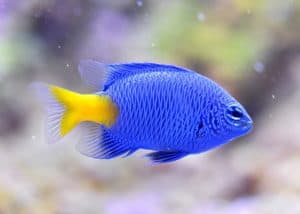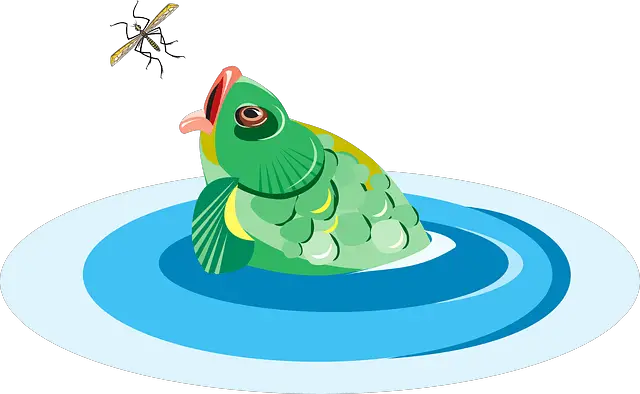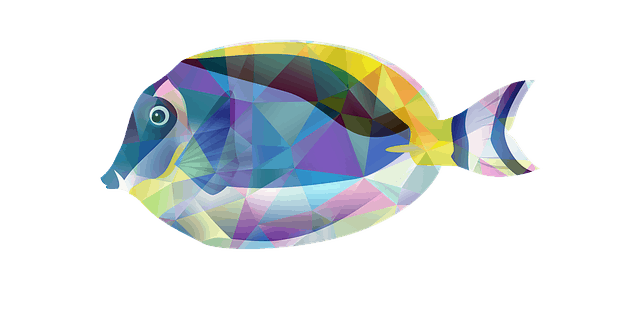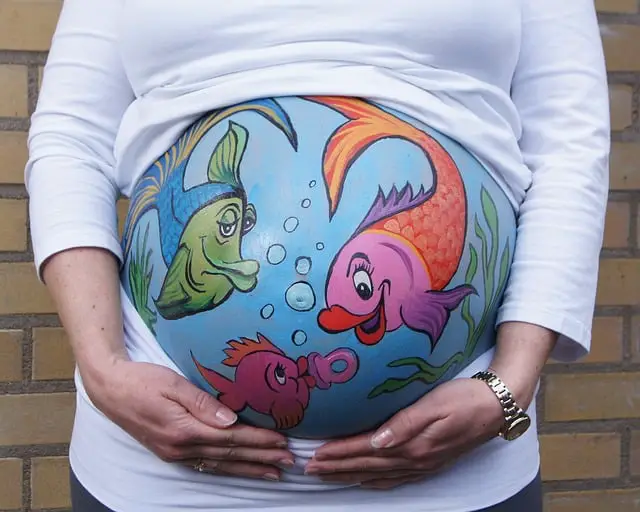Let’s face it. We all love our fish and love having our aquariums in our home. Our fish come from various locations and are shipped from around the world. Most likely in unfavorable conditions and bags that are barely large enough for the fish to maneuver around inside of. Fish are often kept in boring and prison-like set-ups in many local stores where fish sit until a lucky owner encounters the fish they finally want to take home.
We also know the benefits of having aquariums around and how peaceful they can be. We have even discussed how having an aquarium in your home can reduce anxiety and stress. You can see that article here. While sitting near my fish tank not too long ago, I got to thinking. Is it ethical to keep fish in a tank? Here’s what I’ve learned on the topic and my personal thoughts on the subject.
So, is it ethical to keep fish in a tank? Yes, it’s ethical to keep fish in a tank if specific criteria are met. First, any fish owner should take the time to learn the fish breeds that you intend to house in the tank and determine what they need to survive. Secondly, fish owners should learn and keep water quality at proper levels.
I’m sure this response may still leave some of your newer potential fish owners scratching their head, so we will cover how to be sure you do this in-depth. The goal of this post is to include everything you need to know so that you can take that feeling of owning a fish penitentiary to the feeling of knowing that you are providing the best possible environment for your fish.
Many factors need to be considered that can make owning fish and keeping fish in a tank 100% ethical.
Items such as owning or purchasing the correct tank, blending the fish properly (creating a proper fish social hierarchy) and ensuring adequate pH levels and filtration systems are being used are just a few of the items. Let’s dive into them further.
Understanding Your Fish and What’s to Come in The Future
95% of fish that are captured or bred are juvenile fish. This makes them more fragile and makes the future unknown. This is when understanding the fish, you are purchasing becomes essential. If you want it to be ethical to keep fish in a tank, you need to provide a proper home. Here are a few things to consider.
- How Big Will Your Fish Get at Maturity?
- How Large of a Tank Is Ideal for Your Fish You Are Housing in Your Tank?
- Do Your Fish Require Anything Else Special or Out of The Ordinary?
- Is There A Chance Your Fish Will Become A Predator at Maturity?
Okay, so let’s discuss these items for a second. This is when you can cross the fine line of a fish tank being ethical or becoming unethical. Understanding these items described above are essential. You need to provide a stable environment for your fish, and it’s impossible to do if you don’t know anything about it.
Would you want a financial adviser providing advice to you who has filed bankruptcy and has no credentials or knowledge? No. You wouldn’t want that because it would be unethical and ultimately bad for your future. The same applies here. Understand what size your fish will reach at maturity.
If you can’t figure this out on your own, ask a professional. That’s what they are there for, and they will be happy to sell you a larger adequate tank for your fish.
You also need to understand if your fish will become a predator or problem fish for your tank in the future. You don’t need to be creating an environment of swapping fish constantly at the store because 1 or a few fish continue to “meet their maker.”
Shockingly, some people either keep predator and prey fish together on purpose or out of ignorance. Doing this is when it becomes unethical to keep fish in a tank.
Large and Energetic Fish Need Space to Move- When This Happens- Great Things Happen
Once you learn that you have a fish or desire a fish that will become large at maturity or fish that have high energy levels, you need a larger tank. If you provide the correct environment, it’s even possible for the fish to display natural behaviors that they would in the wild. Behaviors such as spawning may also take place which can be very rewarding as a fish owner.
If you want ethical, that’s about as ethical as it gets. The fish feels comfortable enough to display all-natural behaviors the same they would be out of the tank and within their natural environments, so I would be shocked if someone disagrees that this is perfectly ethical.
Keeping a Proper Tank- This Includes Size, Equipment, Filtration and Water Quality
This is another big key area that makes keeping fish in a tank ethical. Your water quality needs to be monitored. It should be a priority to check pH levels weekly at least. Overly high or dangerously low pH levels can be harmful or fatal to your fish. If you aren’t familiar with checking or how pH levels work, start by educating yourself with this post I wrote here.
Learning and understanding the Nitrogen cycle in your tank will be the deciding factor as to whether you have success keeping your fish alive or not.
Also, it’s highly unlikely that you should be running a fish tank without using some form of a filtration system. A filtration system should be at the top of the list. Even installing other small additions like screens to prevent jumpers is another little addition you add to make having fish in your tank ethical.
It’s only a matter of time before one of the fishes makes that final leap over the wall, and you find it on the floor the next day. Now that’s an example of being unethical with raising fish.
Lastly, you need to be on top of all the other little things such as cycling your tank, ensuring lighting is proper, water changes, and feeding schedule is monitored.
Let’s cover the feeding and food source issues to keep in mind to remain ethical raising your fish.
Understand Food Sources, Food Quality, and Schedules Are Critical
Nutrition is also essential for a good balance in your fish tank. You should be using high-quality food sources. You also need to know what the fish should be consuming. For example, a Mandarin fish is a picky eater. In this situation, it’s important to learn or speak to a professional to make sure you are raising your fish in the best possible environment and providing the proper food sources.

Don’t Ignore Attitude When It Comes to Raising Your Fish-It’s Equally Important
Attitude is equally important when determining if it’s ethical for you to be keeping fish in a tank. Many individuals want to be fish owners, but they don’t want to spend 5-10 minutes to learn anything about the fish or learn how to test the water quality.
This is when it becomes unethical fast. These will be the individuals coming back to the fish store frequently replacing a dead fish with a new fish. Before purchasing a fish, tank and adding fish to the tank, you should ask yourself these questions to ensure it’s ethical to do so.
Why Do You Want A Fish Tank?
Are You Going to Learn About the Fish You Are Raising? This would include the following.
- Food Sources
- Size at Maturity
- What Fish They Should Be Housed With
Do you have time to maintain, clean and monitor water quality for your fish tank on an ongoing basis?
Do You Have the Budget to Maintain a Fish Tank with All Equipment Needed and Your Hiked Electrical bill?
Listen, mistakes are bound to happen and will be tough to avoid when raising fish. It does have a somewhat steep learning curve. With attitude however, comes the willingness to learn something from the mistake so you don’t continue the unethical behavior or actions that’s harming your fish.
The answers to these questions will ultimately determine and let you know if it’s a good idea for you to be purchasing fish and keeping them in a tank. If you answered yes to all of these, it’s ethical and your well on your way to raising fish in a great environment. If you answered no to these questions, it might be wise to rethink purchasing a tank and fish to house inside of it.

Putting It All Together- There’s No Definitive Answer- Just A Better Way of Doing It
To sum things up, there is no right or wrong answer to the question, “is it ethical to keep fish in a tank.” For some, yes, it’s 100% ethical but requires some due diligence and the attitude/desire to create a well-balanced and safe environment.
For those just wanting the sound of bubbles in your home and a few fish swimming around in the tank with no intentions of caring for them, that’s an entirely different story and not at all ethical.
At the end of the day, take some time to learn your fish, what they need and purchase the correct equipment and stay diligent with maintenance and you will fall in love with raising fish and do it in an ethical, Rockstar fashion.
Finally, if you feel you have what it takes to create a fantastic, stable environment for your fish and have yet to purchase a tank, you can start by visiting my recommend aquariums page here.

Related Posts
How Long Can Fish Live During Shipping?
Do Fish Know They’re in a Fish Tank?






